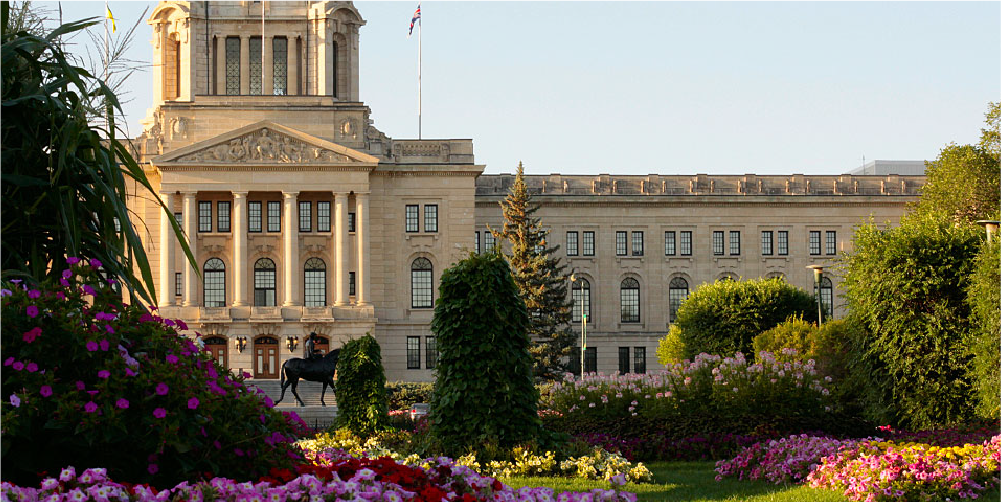
What’s Happening in Saskatchewan?
Egale Explains
This page was published in August 2023
Jump to: Healthcare | Education | Sport | Donate
In August 2023 the Government of Saskatchewan announced its “Use of Preferred First Name and Pronouns by Students” Policy – requiring that teachers must first seek permission from a student’s parent for pronoun use and name changes for students younger than 16.
What’s in Saskatchewan’s Bill 137 (the so-called “Parents’ Bill of Rights”)?
What’s in Saskatchewan’s Bill 137 (the so-called “Parents’ Bill of Rights”)?
- When a student under the age of 16 requests that a different name or pronoun be used for them for informal school interactions, school staff are prohibited from honouring that request unless the student’s parents consent to the change.
- In other words, school staff are required to deadname and misgender the student unless and until their parents grant consent for the change.
- When school staff reasonably expect that obtaining parental consent for name and pronoun changes is likely to cause “physical, mental or emotional harm” to the student, they are still not allowed to gender the student correctly. Instead, the principal of a school is directed to encourage the student to speak to a professional (like a counsellor or social worker) to develop a plan to come out to their parents.
- The so-called Parents’ Bill of Rights invokes the “notwithstanding clause” of the Canadian Charter of Rights and Freedoms to prevent it from being struck down on the basis that it violates young people’s rights to life, liberty, security of the person, and equality.
The Policy Updates, Explained
Saskatchewan’s mandate that teachers must misgender their students has implications for 2SLGBTQI students in Saskatchewan beyond its devastating effect on the students who are directly affected.
12% of trans youth aged 14-18 who participated in the Canadian Trans Youth Health Survey rarely or never feel safe at home. 15% reported having experienced physical abuse at home. When we talk about the dangers of forced outing at home, we are not talking about the many young 2SLGBTQI people with supportive, loving families. Young people with supportive families come out to their parents when they are ready. This is true whether the issue is a same-gender relationship or about their chosen names and pronouns. We are talking about the minority who would not be safe at home if they were outed.
School connectedness is a key factor in young people’s mental health and levels of academic achievement, and being misgendered at school has strong negative effects on school connectedness.
Trans participants in Egale’s Still in Every Class in Every School study who were prevented from using their chosen name and pronouns were more likely than trans students who were not prevented from using their chosen name and pronouns to agree with the statements: “It is hard for me to feel accepted at my school” (77% versus 50%); “I wish I were in a different school” (59% versus 29%); “I don’t like being at school” (80% versus 57%). Other research has found that use of chosen names at school for trans youth is associated with a reduction in depressive symptoms and increased self esteem, and that having supportive teachers is itself associated with school connectedness as well as better attendance at school.
All 2SLGBTQI students in Saskatchewan are being denied ability to succeed to their fullest potential by the Government of Saskatchewan’s actions. Forcing young people to choose between being misgendered and coming out is unconscionable, and so is forcing teachers to ignore their professional ethical standards and harm their students in this way.
August 2023 Update
Bennett Jensen, Director of Legal at Egale Canada and McCarthy Tétrault LLP as co-legal counsel for UR Pride Centre for Sexuality and Gender Diversity have commenced legal action against the Government of Saskatchewan in response to the “Use of Preferred First Name and Pronouns by Students” policy.
Learn more about UR Pride Centre for Sexuality and Gender Diversity v. Government of Saskatchewan et al.
2SLGBTQI communities are under attack. We need your support.
Your donation will go towards our litigation and advocacy efforts, which include initiating and supporting litigation to combat discriminatory government policies and legislation, and making that work accessible to the public. Our aim is to help create a world, without homophobia, biphobia, transphobia, and all other forms of oppression so that every person can achieve their full potential, free from hatred and bias.